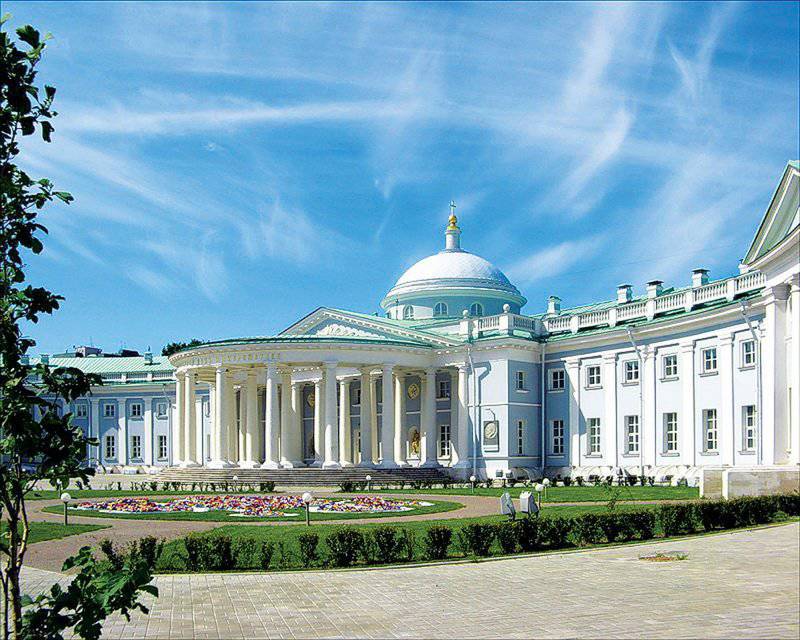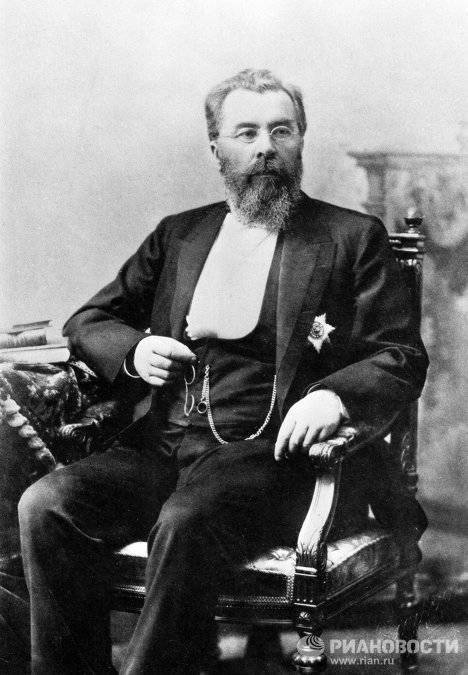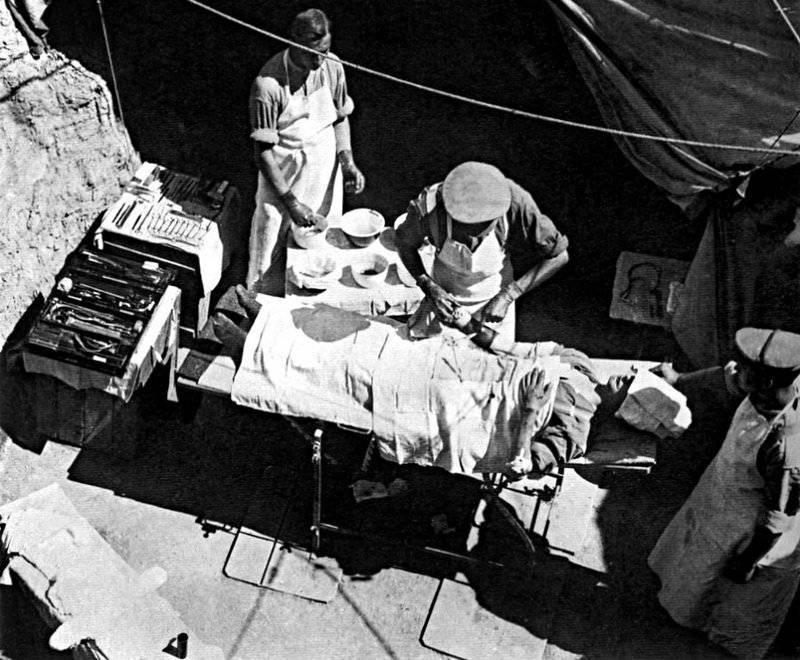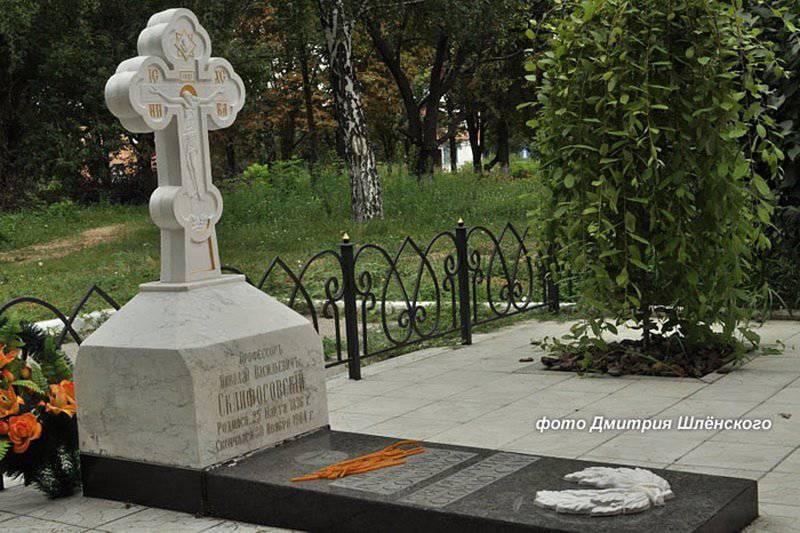Ancestor of Russian field surgery Nikolay Vasilievich Sklifosovsky
In our days, the Institute of emergency care to them. Sklifosovsky is the largest multidisciplinary scientific and practical center of emergency medical care in our country. All divisions of this institute provide round-the-clock, free-of-charge, highly qualified medical care to everyone who needs it. The main tasks of the institute are medical assistance to the injured and the sick, scientific activities, training of new personnel and consulting specialists in the field of emergency medicine.
Today, the Institute has created about 40 of various scientific departments, more than 50% of which are clinical. The large practical and scientific potential of the existing staff, modern equipment can successfully improve existing methods of diagnosis and treatment, as well as develop new methods to treat patients with severe injuries and injuries. In total, the institute employs more than 8 hundreds of doctors and researchers, including 2 academician, 2 corresponding member of the Russian Academy of Medical Sciences, as well as 37 professors, 78 doctors and 167 candidates of medical sciences. The institute has 918 stationary beds, 90 of which are reanimation beds. During the year, more than 20 thousands of various surgical operations are performed on the basis of various departments of this institute.

The institute got its name after the October revolution of 1917. At that time, its original name was liquidated, the institute was called the Weird House or the Sheremetev Hospital. After the revolution, it became an ordinary city hospital, on the basis of which, in 1923, the specialists of the Moscow Healthcare Department decided to organize an emergency care institute, giving it the name of the great Russian doctor and surgeon N. V. Sklifosovsky.
Nikolai Vasilievich Sklifosovsky
Nikolai Vasilievich Sklifosovsky was born on a farm near the Moldovan town of Dubossary 25 in March (April 6) 1836 of the year, which at that time belonged to the Kherson province. His father was a petty official - he served as a clerk in a local quarantine office, and his mother was a housewife who brought up a horde of children. Nikolai was already the 9 child in the family, and after it 3 was born.
In the future, the great childhood of the surgeon was quite hungry and difficult - his father’s small salary was barely enough for food. As a result, parents with many children gave several of their children, including Nicholas, to the Odessa shelter. However, the boy, who suddenly became an orphan with living parents, did not disappear in this life. From childhood he was drawn to knowledge and had great abilities, which allowed him to graduate from the Odessa gymnasium with a silver medal.

Even in early childhood, he heard the fascinating stories of his father about the fight against various epidemics and dreamed of growing up to become a real doctor. Excellent knowledge and acumen allowed him after graduating from high school to enter Moscow University, he studied in Moscow at public expense. At that time, representatives of all sectors of society could get a higher education for free if, of course, they themselves were striving for it.
Student Life
All the years of studying at the university, Nikolay spent in poverty, since the student scholarship was not large. This did not prevent him from being an outstanding student who, even during his studies, predicted a great future, although he managed to faint during the very first operation he had seen with his own eyes, being afraid of the sight of blood. He was able to overcome this fear very quickly, and Nikolay Sklifosovsky showed such brilliant results during his studies and practical exercises that immediately after graduating from the university in 1859, he received the right to take a doctoral degree among a small number of students.
At the same time, Sklifosovsky decided to postpone his studies in pure science for a while and returned to Odessa, where he got a job in the city hospital as an intern at the surgical department. Quite interesting is the fact that soon the young specialist was offered the post of head physician, that is, an administrative position, which he refused, because he dreamed not of regalia and positions, but of permanent surgical practice.
In 1863, Nikolai Sklifosovsky received his medical degree, having defended his thesis on “About a circulatory blood tumor,” he did at the age of 27. At the same time, the young doctor paid attention and little studied at the time of gynecological diseases. Over time, his name became more and more famous in the world, especially after a number of his works were published in leading medical journals. In 1866, Sklifosovsky was seconded abroad for 2. During this time he managed to visit England, Germany, France. This trip allowed him to get acquainted with advanced surgical areas and schools in Europe.
Military surgeon
In the future, Nikolai Sklifosovsky constantly followed the modern European trends in medicine, keeping in touch with Western European clinics and visiting them frequently, and also participated in international congresses. In the 1866 year, Sklifosovsky, with the consent of the Russian government, worked as a military surgeon during the Austro-Prussian war and even received the award - the Iron Cross. After completing his overseas business trip, Nikolai returns to the Odessa City Hospital, from where in 1870 he was invited to work at Kiev University, where he, however, worked for a relatively short time.

Being a real follower of the famous surgeon Pirogov, Sklifosovsky correctly assessed the importance and importance for the surgeon of practical work, in particular the knowledge of military surgery. Therefore, temporarily leaving the department in Kiev, he went to the theater of hostilities of the Franco-Prussian war, where he studied the work of military hospitals. In 1871, Sklifosovsky was invited to work at the department at the St. Petersburg Medico-Surgical Academy, where he taught surgical pathology, while at the same time managing the clinical department of a military hospital. Through 5 years after that, Nikolai Sklifosovsky became a member of the Balkan, and in 1877-78, and the Russian-Turkish wars.
In the Balkan War, Sklifosovsky worked on a business trip of the Russian government as a consultant to the Red Cross, and during the Russian-Turkish war he was not only the organizer of surgical care in military hospitals, but also a practicing surgeon who often helped the wounded even under enemy fire. Sklifosovsky could not leave the receptionist for days, saving both his and others. For the surgeon, the most important was the life of a person, and even who he was by nationality: Russian, Serb or Turkish was not so important.
In war, surgeons often exposed their lives to the same danger as soldiers, but continued their work. The wife of Nikolai Sklifosovsky, Sofia Alexandrovna, later recalled: “After 3-4 operations in a row, often at a high enough temperature in the operating room, inhale for several hours of work with ether, carbolic acid and iodoform, he came home with a terrible headache, which he got rid of, drinking a small cup strong coffee. It is worth noting that it is Nikolai Sklifosovsky who can be called the ancestor of modern field surgery. Until Sklifosovsky it was not accepted to disinfect instruments everywhere, and it was only thanks to his authority and efforts that an antiseptic took root in Russia, which saved millions of people from blood poisoning and other complications after surgery.
Tragedy in the estate near Poltava
In 1880, Sklifosovsky was unanimously elected to the department of the faculty surgical clinic at Moscow University. This clinic, he was in charge of 14 years. In 1893, Sklifosovsky received the post of director of the Institute for Advanced Medical Education in St. Petersburg, where he worked until 1900. Over the years he managed to raise a whole galaxy of talented students, among whom were: Aue, Kuzmin, Sarychev, Trauber, Yakovlev, and others. He managed to develop a large number of methods for the surgical treatment of various diseases (cancer of the tongue and jaws, surgical treatment of brain hernias, removal of bladder stones, and many others). However, if professionally everything went well for the surgeon, many tragedies awaited him in his personal life.

In his youth, he had to endure a very terrible grief - his wife Lisa died at the age of just 24 years, leaving him with 3 young children in her arms. Later, he re-married their governess, Sophia Alexandrovna, who bore him 4's more children. But terrible trials still awaited this family. One of the surgeon’s sons, Boris, died in infancy; another, Konstantin, died at the age of 17 due to kidney tuberculosis. However, the worst story happened to his eldest son Vladimir, who, while studying at St. Petersburg University, got carried away by politics.
Vladimir joined a secret terrorist organization that entrusted him with the task of killing the governor of Poltava. Sklifosovsky's estate, where they liked to spend their free time, was located just under Poltava, and the governor was a friend of the family. That is why the task to kill him was given to Vladimir. However, having arrived at his estate, he was in a depressed mood, could not kill his acquaintance, and, not wanting to confess to "faint-heartedness" as his new comrade, he committed suicide by shooting himself in his own room.
If the death of 2's other sons of Boris and Constantine could be reconciled, as with the natural, then the tragedy with the eldest son literally crippled the famous surgeon. He quit his job and moved to his Poltava estate for good, where in 1904 he died of a stroke at the age of just 68 years.
Information sources:
-http: //tainy.info/personalia/sklifosovskij-%E2%80%93-vrach-milostyu-bozhiej
-http: //nplit.ru/books/item/f00/s00/z0000054/st006.shtml
-http: //www.sklifos.ru
-http: //ru.wikipedia.org
Information